Morocco Tour
Your adventure starts in the enchanting city of Chefchaouen. This private tour offers an in-depth exploration of Morocco’s diverse landscapes and cultural treasures, including visits to imperial cities, the Atlas Mountains, and the Sahara Desert. Experience the unique charm of traditional Moroccan architecture, vibrant markets, and historical sites. With expert guides and carefully curated itineraries, this private luxury tour ensures an unforgettable journey through the heart of Morocco, filled with unforgettable moments and breathtaking scenery.
14 days
Personal purchases, drinks, lunch, tips, flights, services not mentioned above.
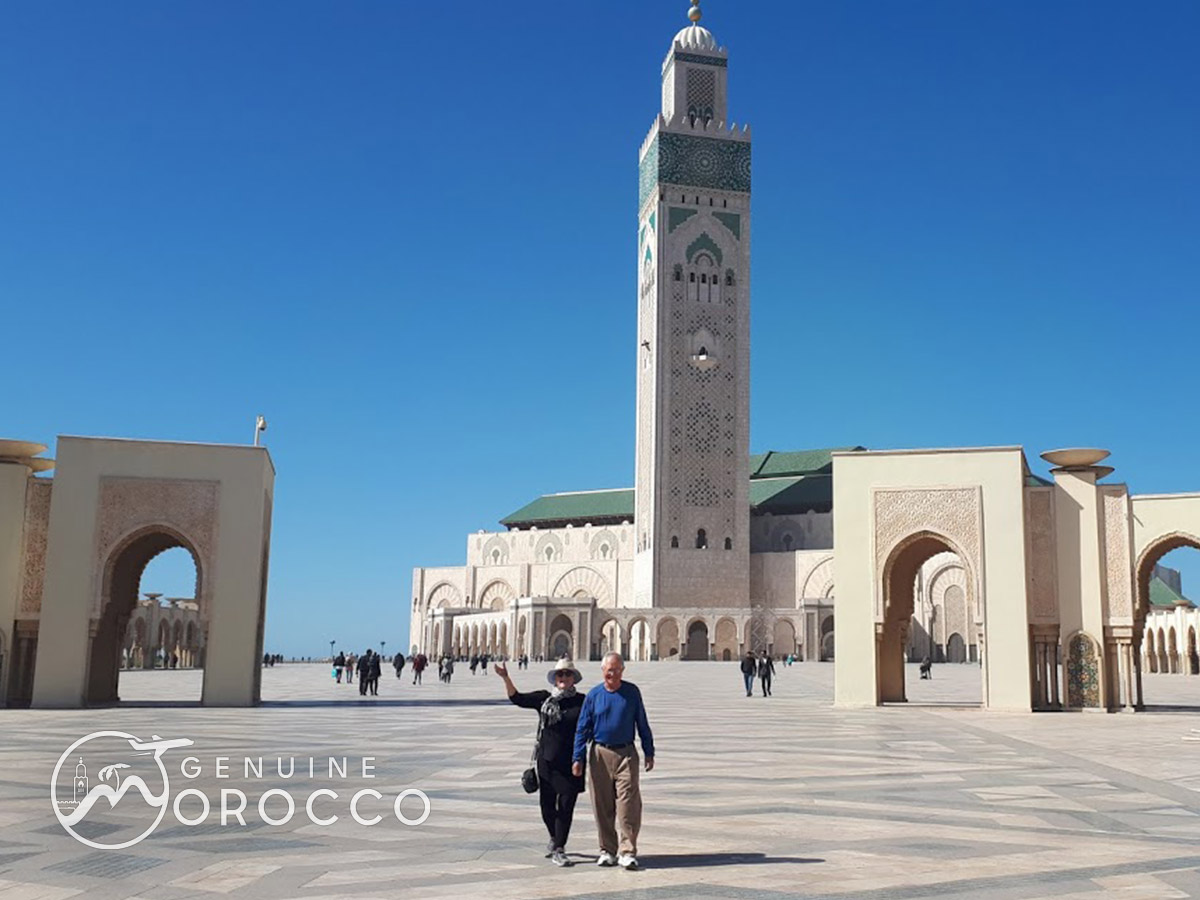
Day 1
Our representative will be awaiting your arrival at Casablanca International Airport. Please look for him in the arrival’s hall. He will be holding a placard with your name on it. He will escort you to your private vehicle.
Casablanca, or ‘Casa’ as the locals call it is the largest and most populated city in Morocco; it is also the busiest port and its economic and industrial capital accounts for more than half of the country’s industrial output. The atmosphere is more cosmopolitan than in other parts of the country, with Western dress and fashions predominating. Start discovering Morocco’s largest city and economic capital, Casablanca is the best representation of the modern nation. A brief highlight tour will cover include those at Pl Mohammed V, and new public buildings include the Grand Theater de Casablanca. The city’s handsome Moresque buildings, which meld French-colonial design and traditional Moroccan style, are seen best downtown area, the Quartier Habous and in the beachside suburb of Ain Diab, and the flamboyant building of Hassan II Mosque (interior). If you only visit one place in Casablanca, make it the Hassan II Mosque, sitting in a picturesque location on the sea. Inaugurated in 1993, its minaret is the tallest structure in Morocco and the tallest minaret in the world. While the exterior and surrounding area are impressive, what makes this mosque unique is that it is one of the few mosques in the country that non-Muslims can enter. Continue to your hotel via hay way to rabat for overnight.
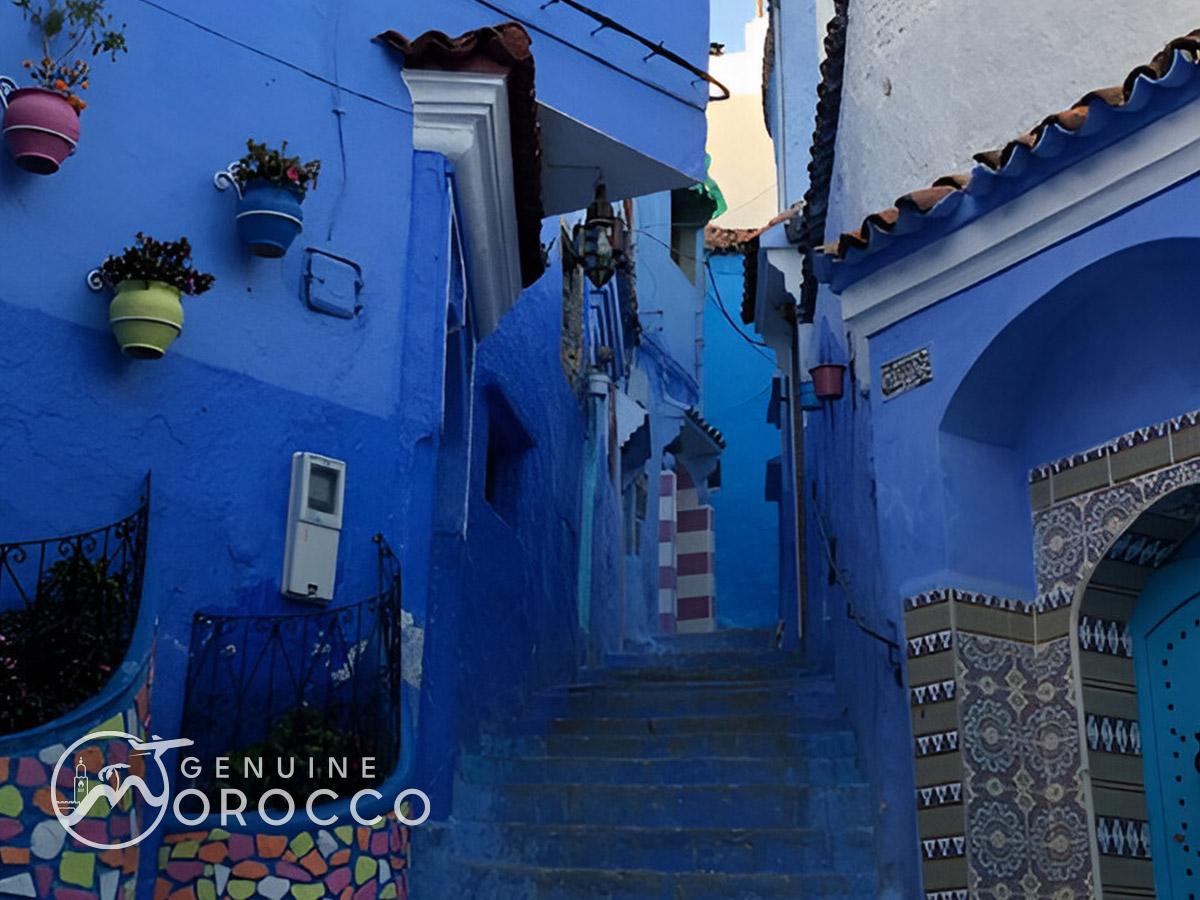
Day 2
After breakfast, you will start a visit to the Hassan tower which stands on the hill overlooking the Wadi Bou Regreg. It is a gigantic mosque, emblematic of Rabat and famous for its unfinished minaret where storks nest. Next door, visit the beautiful Mausoleum of Mohammed V decorated with stained glass windows, Visit the Jewish Mellah which today is now the home of very few Jewish families. Explore the gardens nearby and visit the Necropolis at Challah/ Kasbah of Challah and Kasbah Oudaya.
After the visit you depart for Chefchaouen. Chefchaouen is a respite of quiet after the busy cities of Casablanca and Rabat. However, it has enough of what is quintessentially Moroccan to be of interest to travelers looking for something a bit more authentic. Nature lovers will enjoy the easily accessible mountains. And shoppers will enjoy the hassle-free boutique shops for everything from hand-spun pottery to artisanal soaps made right in the city.
Whether you spend your afternoon wandering the clean medina streets, enjoying a walk through the Rif Mountains, or just want to relax with a book and a fresh mint tea, like most visitors to Chefchaouen, you will walk away having experienced something magical.
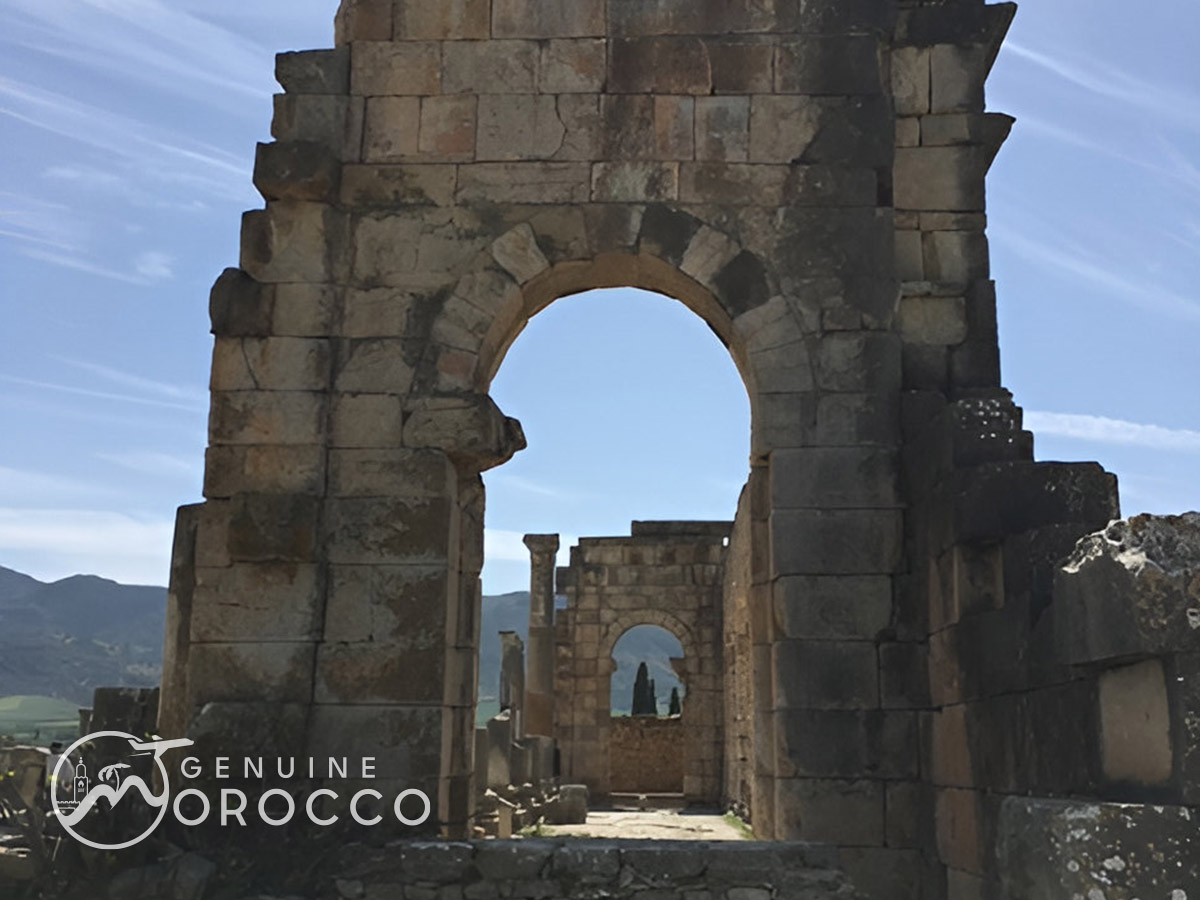
Day 3
In the morning we will take the road to Chefchaouen, we will drive along the biggest agriculture fields in Morocco and arrive near lunch time to Meknes This city has all the winding narrow medina streets and grand buildings that it warrants as an imperial city and one- time home of the Moroccan sultanate. Remnants of no less than three sets of fortifications, ingeniously incorporated into the city’s road networks, make it clear how important this city once was. The king’s tomb sits at the heart of what remains of the original imperial city, flanked by an almighty royal granary, the magnificent Bab el-Mansour. Then off to Volubilis to explore the UNESCO-designated Roman ruins. Only about half of the 40-hectare site at Volubilis has been excavated. The monuments of interest such as The Capitol, Basilica, and 1300-sq-metre Forum are, typically, built on a high point. The Capitol, dedicated to the Triad of Jupiter, Juno, and Minerva, dates back to AD 218; the Basilica and Forum lie immediately to its north. After the tour of Volubilis, continue to Fez and overnight.
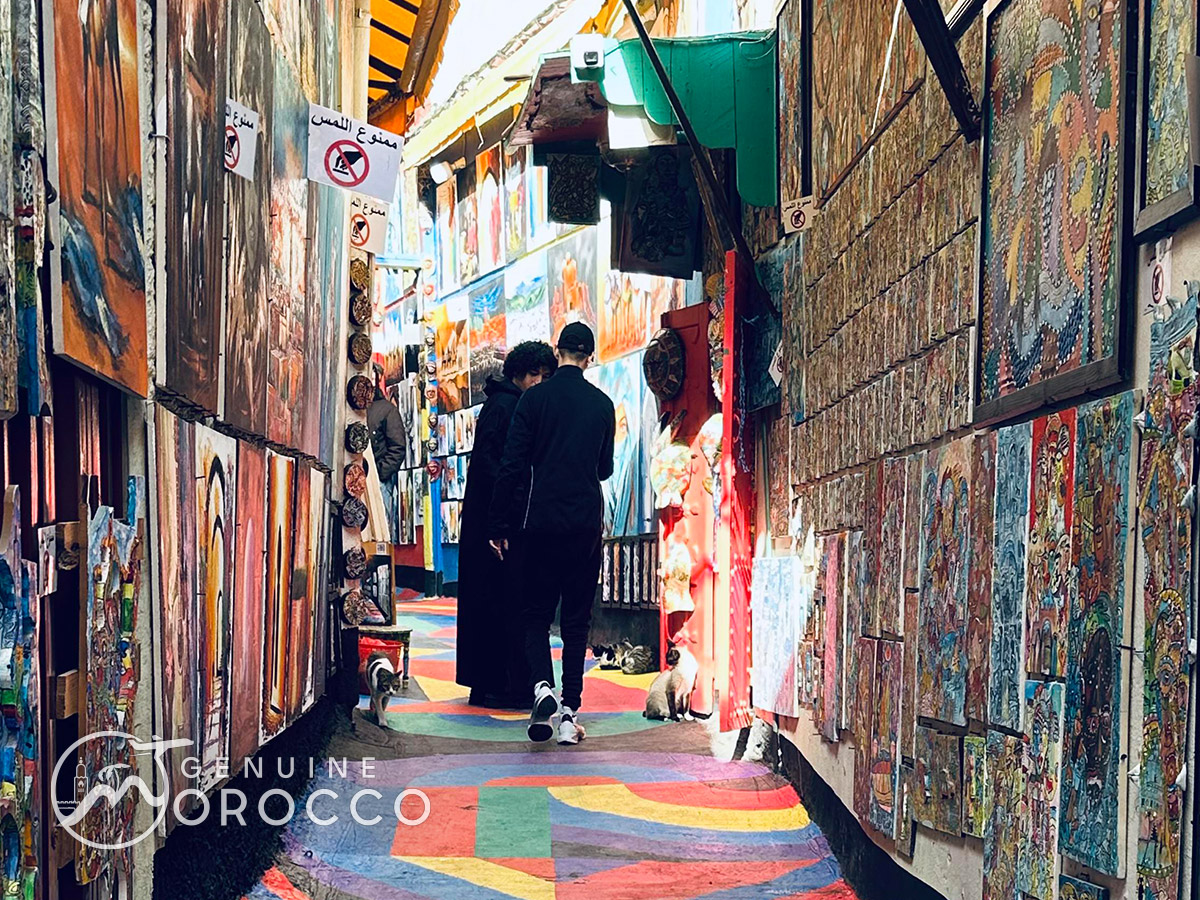
Day 4
Welcome to Fes, the most monumental of the Imperial Cities. The medina of Fès el-Bali (Old Fez), a World Heritage site, is an assault on the senses, a warren of narrow lanes and covered bazaars bursting with aromatic food stands, and craft workshops, mosques, and an endless parade of people. We will walk along narrow, uneven alleyways, with daylight filtering down from above high gray walls, flanked by tables heaped with spices, dried fruits, fresh fish or silk, and leather garments. Residents of Fez have been selling goods and working metal by hand in the medina since medieval times, and today’s generation works in the same stalls their ancestors once did. And everywhere, there are cats, scrounging, prowling, and sleeping – the mascots of the medina. Here, in the heart of Fez, the old and the new constantly collide – the man driving the donkeys and mules is likely to be chatting on his mobile phone, while the ancient skyline is punctuated equally with satellite dishes and minarets. The city tour will include; Bab Boujloud, Mellah, and Jamaa Al-Karaouine the oldest continually operating university in the world. Founded in 859, virtually every surface of its quiet inner courtyard is decorated with highly detailed, delicately carved geometric patterns. Entering this graceful place hidden in the medina lifts a veil on an ancient culture that once kept outsiders at arm’s length. The Medersa Bouanania complex is the spiritual heart of Fez & Morocco. The Chaouwara tanneries are the city’s most iconic sights (and smells), offering a unique window into the pungent, natural process of producing world-class leather by methods that have changed little since medieval times. Time permitting, we will also visit clay workshops, artisan quarters, the souks of the largest and oldest medina in Morocco, and Batha Museum (a former Royal Palace converted into a museum in 1916 with over 6,000 collections).
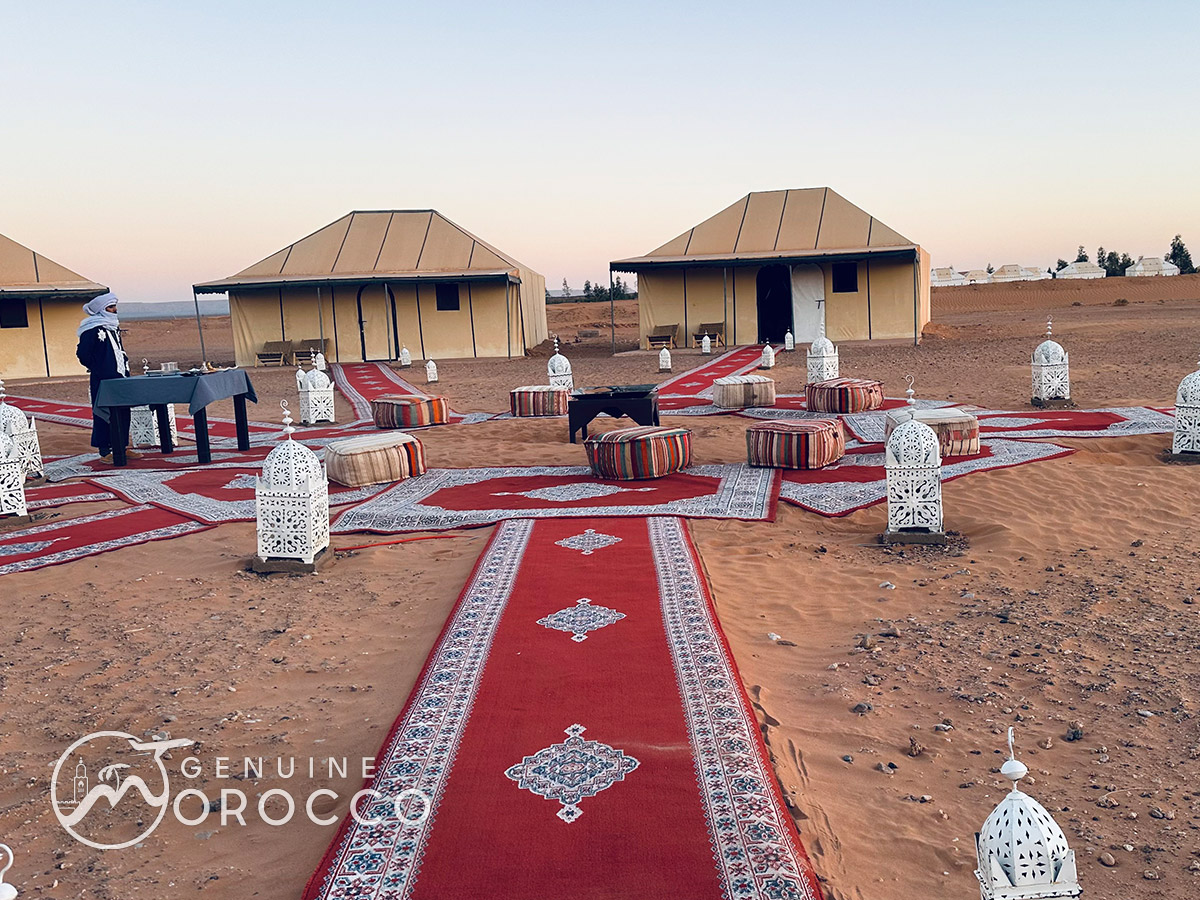
Day 5
This morning, depart Fez to pass through many amazing cities and villages, the first of which is Ifrane, also called Morocco’s Switzerland, a charming ski town sprinkled with European-style chalets. Continue to Midelt, which serves as the commercial center of a large agricultural hinterland. It is also one of Morocco principal cities for the mining industry. You will have some free time in Midelt before continuing your journey through the dramatic Ziz Gorges to arrive in Merzouga for a camel ride to the camp Dinner and overnight in a Berber tent.
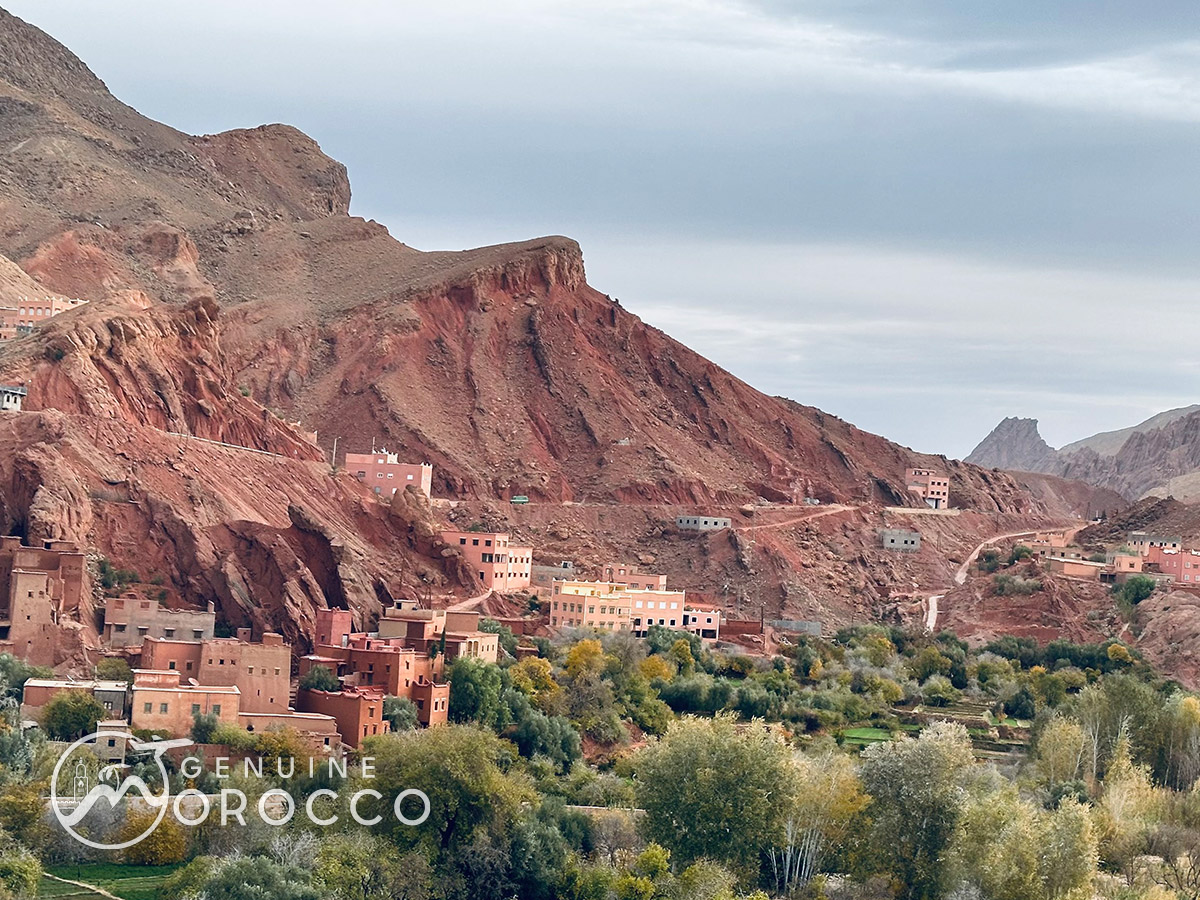
Day 6
Early sunrise camel ride along the golden dunes in Merzouga. Then return to your camp for breakfast before we leave for Tinghir via Tinjdad. We will start the city tour of Tinghir where a good number of Jews used to live during the 20th century. We will visit the Jewish quarter, the area where Jews used to live in co-existence with the local Berbers. We can take time to walk along the very beautiful valley and on the banks of the river to appreciate the beauty of a very long oasis of more than 40 km rich with palm trees and many sorts of fruits. enjoy a great time in the famous Toudgha Gorges, a 300m cut deep wall into the mountains of the High Atlas and one of the rarest landscapes all over the world. There will be an optional lunch in Toudgha Gorges. Leave Tinghir and drive North West to the gorge of today. Transfer to Kelaat M’Gouna along the Dades Valley. Kelaat M’Gouna is a large village famous for cultivating roses; expect to find many fine, rose-infused products there. Continue to the valley of Skoura and check in to “dar panorama” one of the astonishing properties in the area. Enjoy your dinner there and overnight.

Day 7
After breakfast, explore the Skoura Oasis. Visit the Kasbah Ameridil, dating to the 14th Century. Stroll for an hour in the gardens of the north side of the town past almond and olive trees. Head to explore Ouarzazate. For centuries, people from the Atlas, Draa, and Dades Valley converged to do business at Ouarzazate’s sprawling Taourirt Kasbah, then a modern garrison town was established here in the 1920s to oversee France’s colonial interests. The movie business gradually took off in Ouarzazate after the French protectorate left in the 1950s. Visit Taourir and Tifoultout Kasbahs, which are considered to be among the most beautiful Kasbahs in Morocco. Continue to visit the film studios where some of the most famous desert landscapes were and are still being shot, the spectacular fortress of Ait Ben Haddou, the iconic landscape immortalized in such films as, Lawrence of Arabia, Gladiator, and Alexander. Leave Ait Ben Haddou, crossing the High Atlas Mountains via the magnificent Tiz In Tichka pass to Marrakech. Overnight in Marrakech.
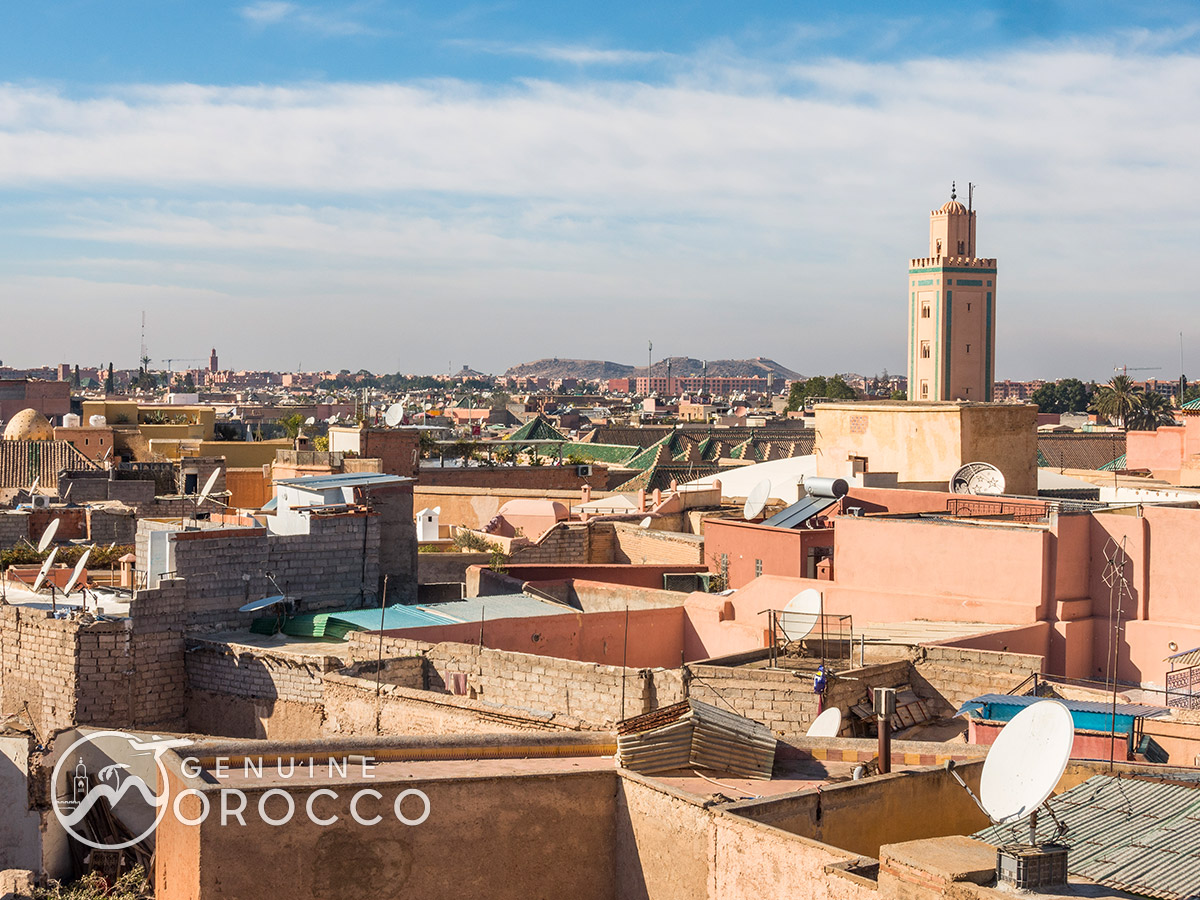
Day 8
An exciting day awaits you as Marrakesh’s heady sights and sounds will dazzle, frazzle and enchant. Our morning city tour will include: Bahia Palace and the Dar Si Said are a riot of tile work and intricate floral painted-wood ceilings. Then, learn about the Berber culture, and follow their steps along the trade routes from North Africa to the Sahel at the Tiskiwin Museum, its displays range from authentic Berber tents and carpets to fine basketwork and ancient jewelry. Continue to Dar El Bacha considered one of the most beautiful palaces in the red city. Visitors can discover the ceiling with multicolored mosaics and Berber-style architecture. After taking time to go to the Jamaa L’Fna square and witness the astonishing spectacle of Djem find juice stalls, water sellers, and snake charmers by day and dancing boys, storytellers, and magicians by night. Overnight at the hotel.
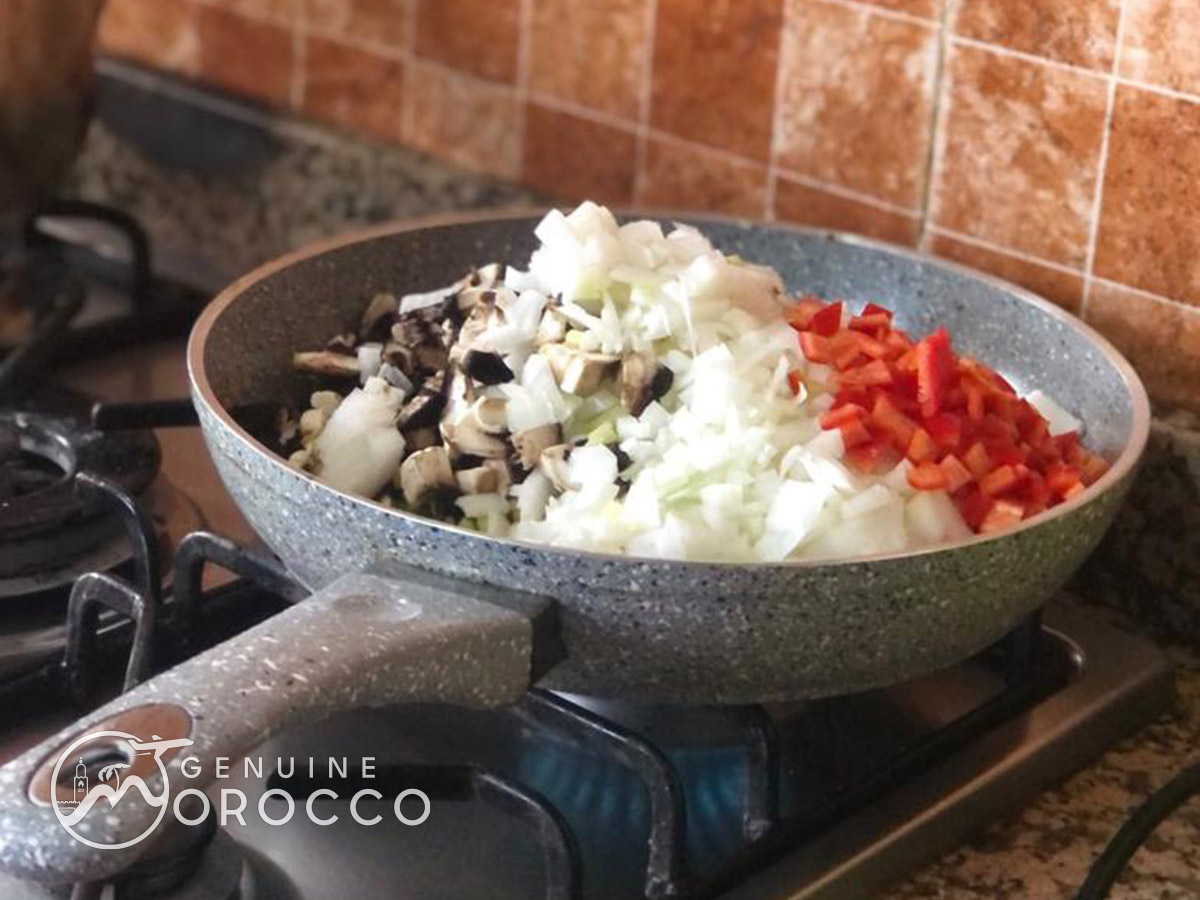
Day 9
Breakfast at the hotel. Today, you will visit the most beautiful palaces and monuments in Marrakech including Badiaa Palace: Built in the late 19th century. Our visit will include the Koutoubia. Drive to the beautiful Jardin Majorelle; Yves Saint Laurent gifted the Jardin Majorelle to Marrakesh, the city that adopted him in 1966. Saint Laurent and his partner Pierre Bergé bought the electric-blue villa and its garden to preserve the vision of its original owner, landscape painter Jacques Majorelle, and keep it open to the public. The garden began cultivating in 1924 and thanks to Marrakshi ethnobotanist Abderrazak Benchaâbane, the psychedelic desert mirage of 300 plant species from five continents continues to be preserved. The garden is also home to the Berber Museum, which houses a small but spectacular collection of authentic Moroccan garments, weapons, and jewelry, dating to the 19th century and before. After lunch at a local restaurant in the medina (own expenses), you begin your stroll through the labyrinth of narrow streets in the Medina and visit the famous Souks, selling everything from leather to clothing to spices.
At 3:30 PM, we will have an exceptional gastronomic experience with Chef awaiting you. Drawing from his extensive knowledge of North Africa’s rich food culture. Join him as he walks you through the mind of a Moroccan chef. From picking out fresh produce in the souks of his hometown market, you’ll leave with an inside perspective on one of the world’s most highly cherished cuisines, dinner with the chef (cooking class food will be served). Back to your hotel for some free time and overnight.
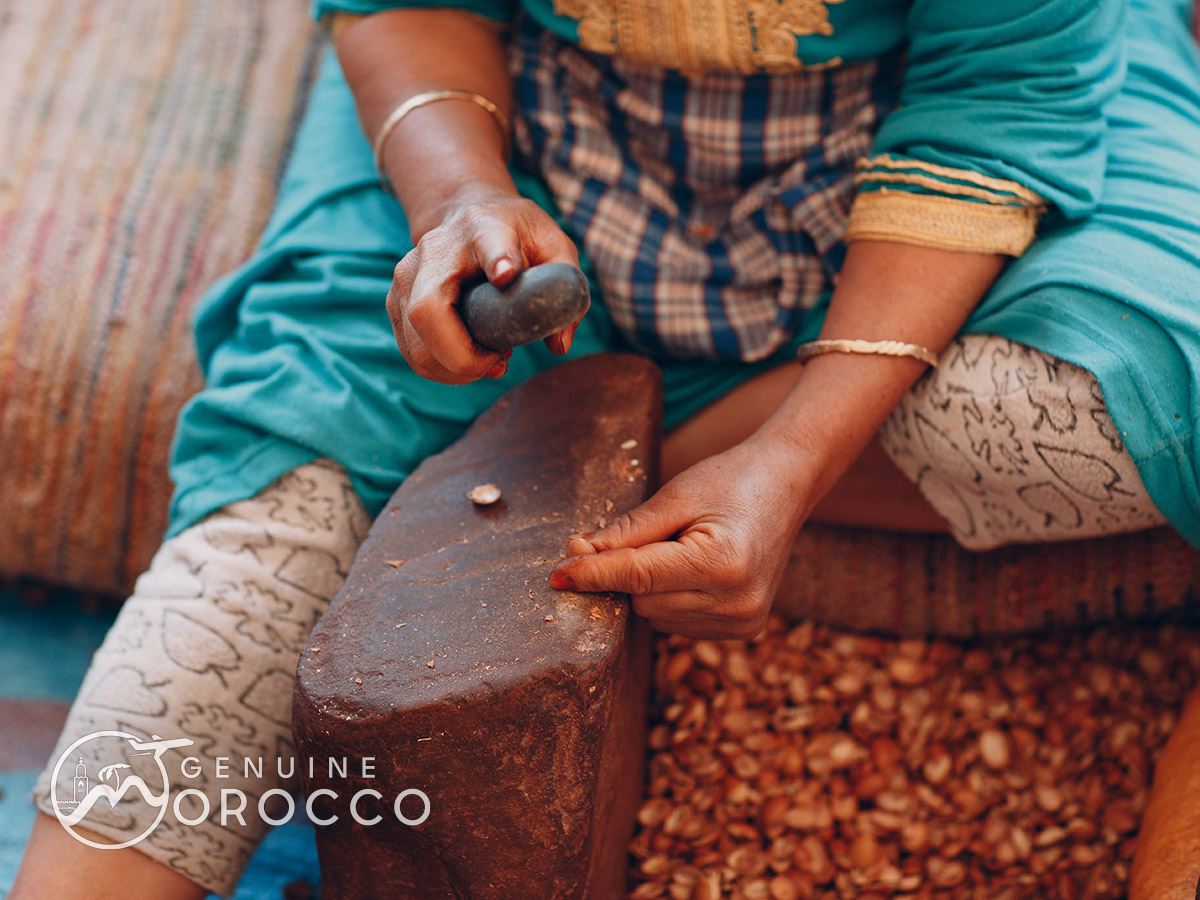
Day 10
This morning you will be met at your hotel and transferred to Essaouira. On the way, you will stop at an Argan oil cooperative where you will enjoy the experience of the different traditional processes of oil making with the local ladies. First of all, the women sit armed with base rock and a hand-held sharp stone to start the extraction process. They crack each Argan fruit to reach the kernels. The women roast the kernels slightly to bring out the flavor, then set them aside to cool down before they ground them into a very thick brown oily liquid using a traditional rock grinder (Azerg). Soon after that, one of the women in the cooperative would mix the oily paste with warm water before hand-kneading to bring the pure, unfiltered Argan oil up to the surface to finally be able to filter it. The brown dough-like hunk (local term: Tazegmount), left after the extraction procedure, is protein-rich and usually used for effective traditional cosmetic recipes as well as for animal feed. You will learn all these methods starting from harvesting the good quality fruits to the extraction and making of Argan oil products. Enjoy a Berber lunch at the cooperative then continue your way to Essaouira where you will enjoy the rest of the day at leisure. Overnight at the hotel.
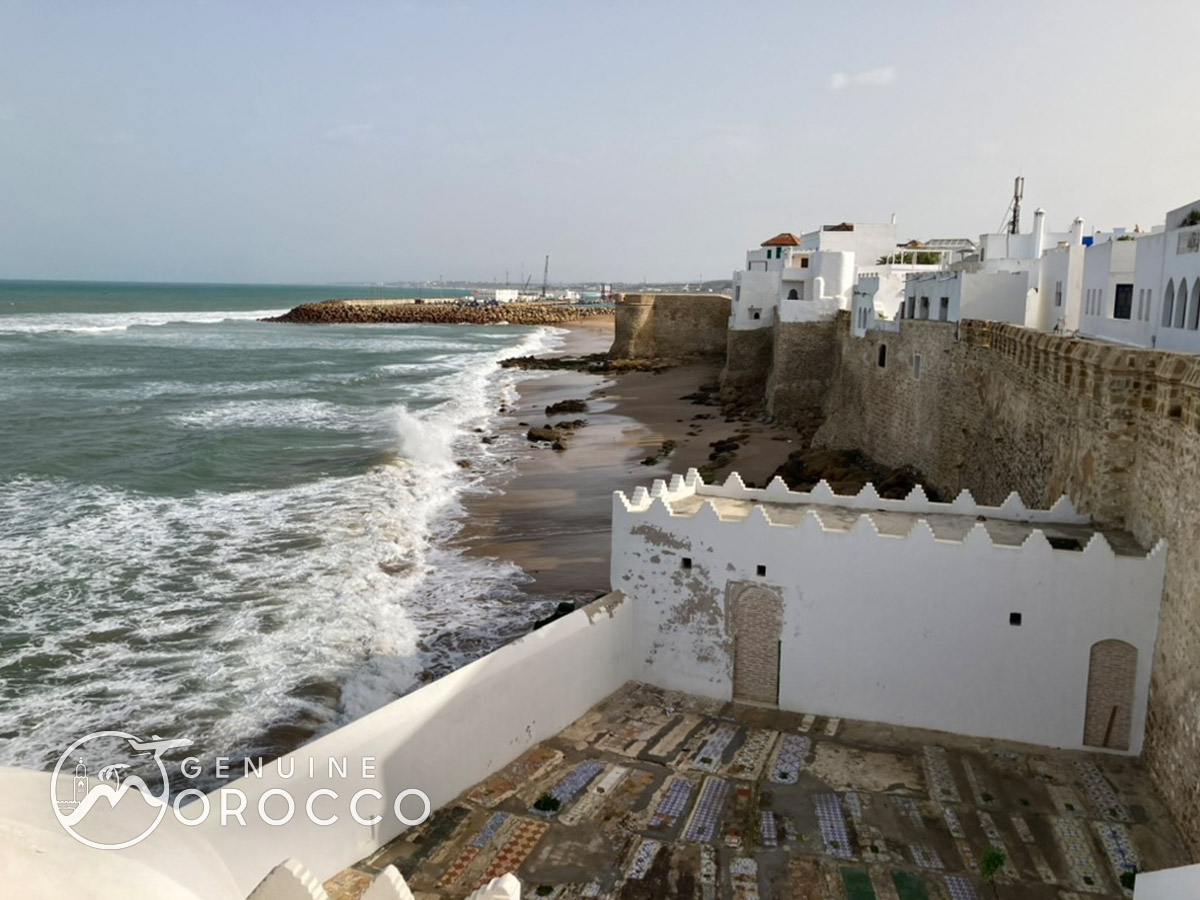
Day 11
Breakfast at the hotel. Essaouira is a relatively small, easily navigable beach city ideal for exploring on your own. Essaouira has got a distinct multicultural feel, resulting from the large Portuguese, French, and Jewish populations that once called it home. Its mild climate and expansive stretches of ocean sand also place it among Morocco’s top beach towns. Essaouira’s walled medina was added to UNESCO’s World Heritage list in 2001. Its well-preserved, late-18th-century fortified layout is a prime example of European military architecture in North Africa. For the visitor, the mellow atmosphere, narrow winding streets lined with colorful shops, whitewashed houses and heavy old wooden doors make it a wonderful place to stroll. Over night at the hôtel.
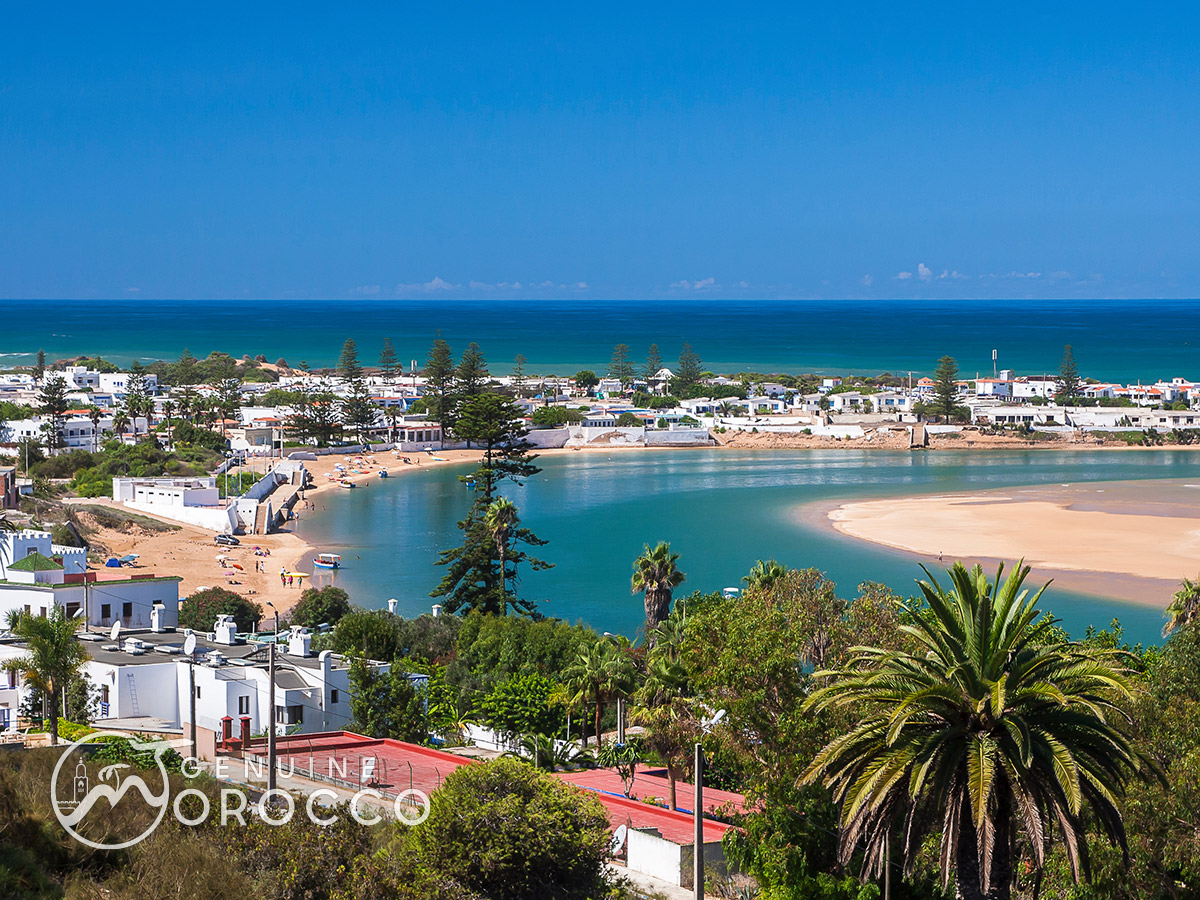
Day 12
Today we will drive to Casablanca via el oualidia and safi at el oualidia you will spend a night in the front of the beach and enjoy the ousters. El oualidia is a city in Morocco located in the province of Sidi Bennour in the Casablanca-Settat region, on the Atlantic coast, between El Jadida and Safi, 158 km south of Casablanca and 212 km from Marrakech. It constitutes the urban center of the rural commune of the same name.
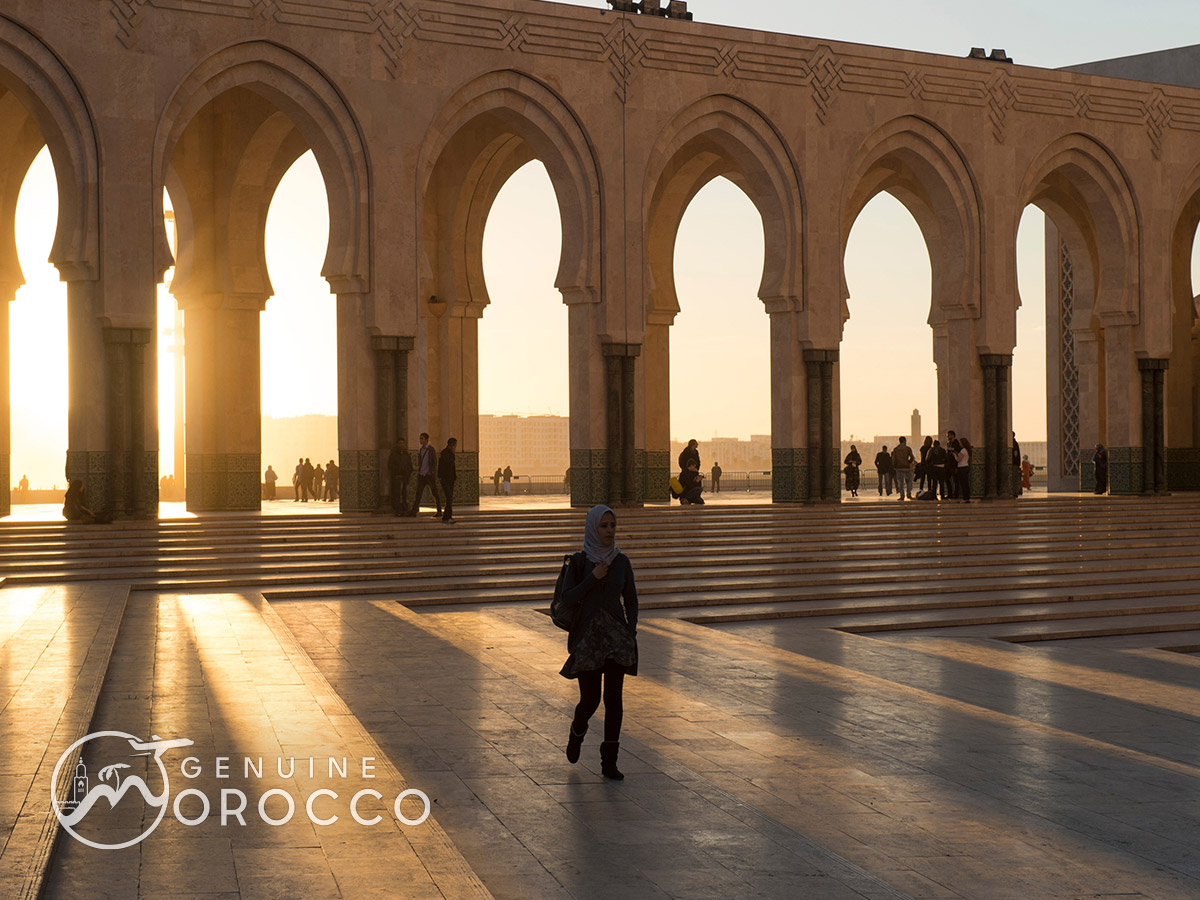
Day 13
Today and after breakfast we wil drive to Casablanca, in our way we will Crosse el jadida city which is located in the Atlantic , in el jadida we will have a stop for lunch before we continue our way on the hay way to Casablanca for over night
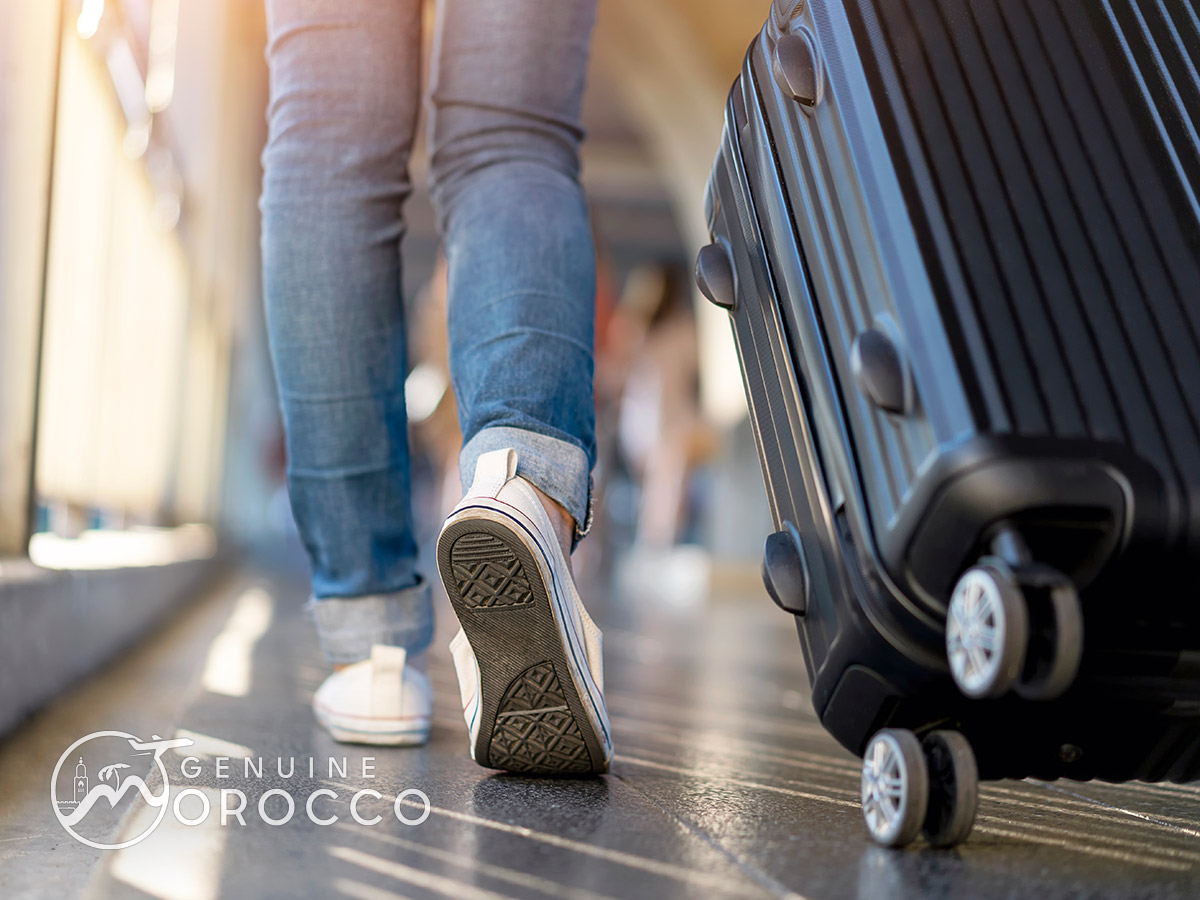
Day 14
Today, we will assist you to Casablanca airport for your return flight.
Genuine Morocco provides guests with a complete and authentic cultural experience, including classic monuments, exploring contemporary culture, engaging with art and artisans, tasting unique cuisine, and discovering amazing Morocco cities.
The payment is encrypted and transmitted securely with an SSL protocol.